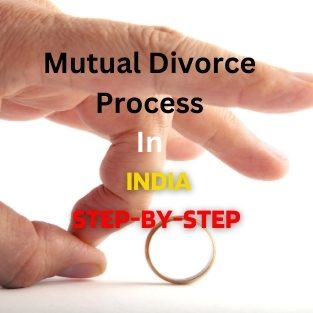A lot of people ask me can i change my name after divorce ?. In this article I have explained name change process after divorce
Introduction:
Navigating the aftermath of a divorce involves not only emotional adjustments but also practical considerations. One such practical aspect is the decision to change your name post-divorce. In this comprehensive guide, we delve into the process, legal implications, and considerations involved in changing your name after a divorce, providing you with all the information you need to make an informed decision.
Can I Change My Name After Divorce?:-Understanding the Legal Process
Legalities of Name Change After Divorce
Changing your name after divorce is legally permissible and relatively common. The process can vary based on your location, but generally, it involves reverting to your maiden name or a previously used surname. The necessary legal steps often include:
- Filing a formal request: This is typically done during the divorce proceedings.
- Updating legal documents: Post-divorce, you’ll need to update your name on various identification documents and records.
Documentation Required
The documentation required for a name change after divorce usually includes:
- Divorce decree: Often, this decree includes a provision for name change.
- Birth certificate and marriage certificate: To prove your previous and married names.
- Application forms: For updating government-issued IDs and records.
The Emotional Aspect:-
Emotional Considerations in Changing Your Name While the legal process is straightforward, the emotional aspect of changing your name post-divorce can be complex. Consider:
- Personal identity: Your name is a significant part of your identity. Reflect on what feels right for you.
- Professional considerations: If you have a professional reputation tied to your married name, consider the implications of a name change.
- Children and family dynamics: If you have children, think about the impact of having a different surname than them.
Practical Steps and Tips :
Step-by-Step Guide to Changing Your Name The practical steps to change your name after divorce include:
- Obtain your divorce decree: Ensure it mentions the name change.
- Notify relevant authorities and institutions: This includes the social security office, DMV, banks, and employers.
- Update legal documents: Change your name on your passport, driver’s license, social security card, and other important documents.
- Inform personal and professional contacts: Notify friends, family, and professional networks of your name change.
Tips for a Smooth Transition
- Create a checklist: Organize the process to ensure you don’t miss any important updates.
- Prioritize critical documents: Start with the most important documents like your social security card and driver’s license.
- Seek legal advice if needed: If you encounter any legal hurdles, consult a legal expert.
Conclusion: Changing your name after a divorce is a personal choice and a significant step in starting a new chapter of your life. While the process is legally straightforward, it’s important to weigh the emotional and practical aspects carefully. Remember, this is a decision about your identity and how you present yourself to the world. Take your time, consider all factors, and make the choice that best aligns with your sense of self and future aspirations.
You can also read :- How to apply for Divorce
FAQ (FREQUENTLY ASKED QUESTIONS)
1. Can I change my name after divorce?
Yes, you can change your name after divorce. It is a common practice for individuals to revert to their maiden name or choose a completely new name.
2. How do I change my name after divorce?
You can change your name by filing a name change petition in the court where your divorce was finalized. The process varies by jurisdiction, so consult with your local court for specific requirements.
3. Can I change my children’s last name after divorce?
Changing your children’s last name usually requires the consent of both parents. If there is agreement, you can include the name change in your divorce proceedings.
4. Do I have to change my name back to my maiden name after divorce?
No, changing your name after divorce is optional. You can choose to keep your married name or adopt a new one.
5. How long does it take to change my name after divorce?
The time frame varies depending on your location and the court’s processing speed. Generally, it can take a few weeks to a few months.
6. Can I change my name before the divorce is finalized?
In some jurisdictions, you may be able to start the name change process before the divorce is finalized, but it’s often simpler to wait until the divorce is complete.
7. Is there a fee to change my name after divorce?
Yes, there is usually a filing fee associated with the name change process. The amount varies by jurisdiction.
8. Do I need a lawyer to change my name after divorce?
While it’s not mandatory, consulting with a lawyer can ensure that you navigate the process correctly. However, many people successfully complete the process on their own.
9. Can I change my name to anything I want after divorce?
There are typically restrictions on offensive or misleading names. Otherwise, you have the freedom to choose a name that is not already in use.
10. Can I change my first name along with my last name after divorce?
Yes, you can change both your first and last names during the divorce name change process.
11. Can I change my name if I remarried after divorce?
Yes, you can change your name even if you remarried. The name change process is separate from marital status.
12. Will changing my name affect my credit score after divorce?
Changing your name itself does not directly impact your credit score. However, it’s important to update your personal information with creditors to avoid any potential issues.
13. Can I change my name on my passport after divorce?
Yes, you can change your name on your passport after divorce. Follow the passport renewal process and provide the necessary documentation.
14. Do I need my ex-spouse’s permission to change my name after divorce?
Generally, you don’t need your ex-spouse’s permission to change your name. However, it’s courteous to inform them, especially if you have children together.
15. Can I change my name if I have a criminal record from before the divorce?
Changing your name does not automatically erase your criminal record. You may need to go through a separate legal process to address any issues related to your criminal history.
16. Can I change my name if I’m not a U.S. citizen?
Yes, non-U.S. citizens can change their names after divorce. Follow the legal process in your country of residence.
17. Can I change my name if I’m getting divorced outside my home country?
The process may vary when getting divorced outside your home country. Consult with legal professionals in the jurisdiction where your divorce is taking place.
18. Can I change my name back to a previous name I had before marriage?
Yes, you can revert to any previous legal name you had before marriage during the divorce name change process.
19. Will changing my name affect my Social Security benefits after divorce?
Generally, changing your name does not impact your Social Security benefits. However, it’s essential to update your records to avoid any complications.
20. Can I change my name after divorce if I have joint debts with my ex-spouse?
Changing your name doesn’t automatically remove responsibility for joint debts. Consult with a legal professional to understand how the name change may affect financial obligations.
21. Can I change my name if my divorce was years ago?
Yes, you can change your name at any time after divorce. There is no time limit for initiating a name change.
22. Can I change my name if I’m in a same-sex marriage and getting divorced?
Yes, individuals in same-sex marriages can change their names after divorce, following the same legal procedures as any other divorce.
23. Can I change my name if my divorce was uncontested?
Whether your divorce was contested or uncontested, you can still change your name. The process remains largely the same.
24. Can I change my name if I’m in the process of a legal separation, not a divorce?
Legal separation may have different rules regarding name changes. Consult with legal professionals to understand the options available in your jurisdiction.
25. Can I change my name on my driver’s license after divorce?
Yes, you can change your name on your driver’s license after divorce. Visit your local Department of Motor Vehicles (DMV) and follow their procedures.
26. Can I change my name after divorce if I have a power of attorney for my ex-spouse?
Changing your name does not automatically void a power of attorney. It’s advisable to update legal documents to reflect your new name.
27. Can I change my name if I’m receiving alimony or spousal support?
Changing your name does not usually affect alimony or spousal support. However, it’s crucial to update relevant legal documents to avoid any confusion.
28. Can I change my name after divorce if I’m currently unemployed?
-Employment status generally does not impact your ability to change your name. Focus on following the legal process in your jurisdiction.
29. Can I change my name if I have a restraining order against my ex-spouse?
Having a restraining order does not necessarily prevent you from changing your name. Consult with legal professionals to navigate any potential complications.
30. Can I change my name if I have a child custody agreement after divorce?
Changing your name does not directly affect child custody agreements. However, it’s advisable to inform the court of any name changes, especially if it involves children.
Sources:-
















